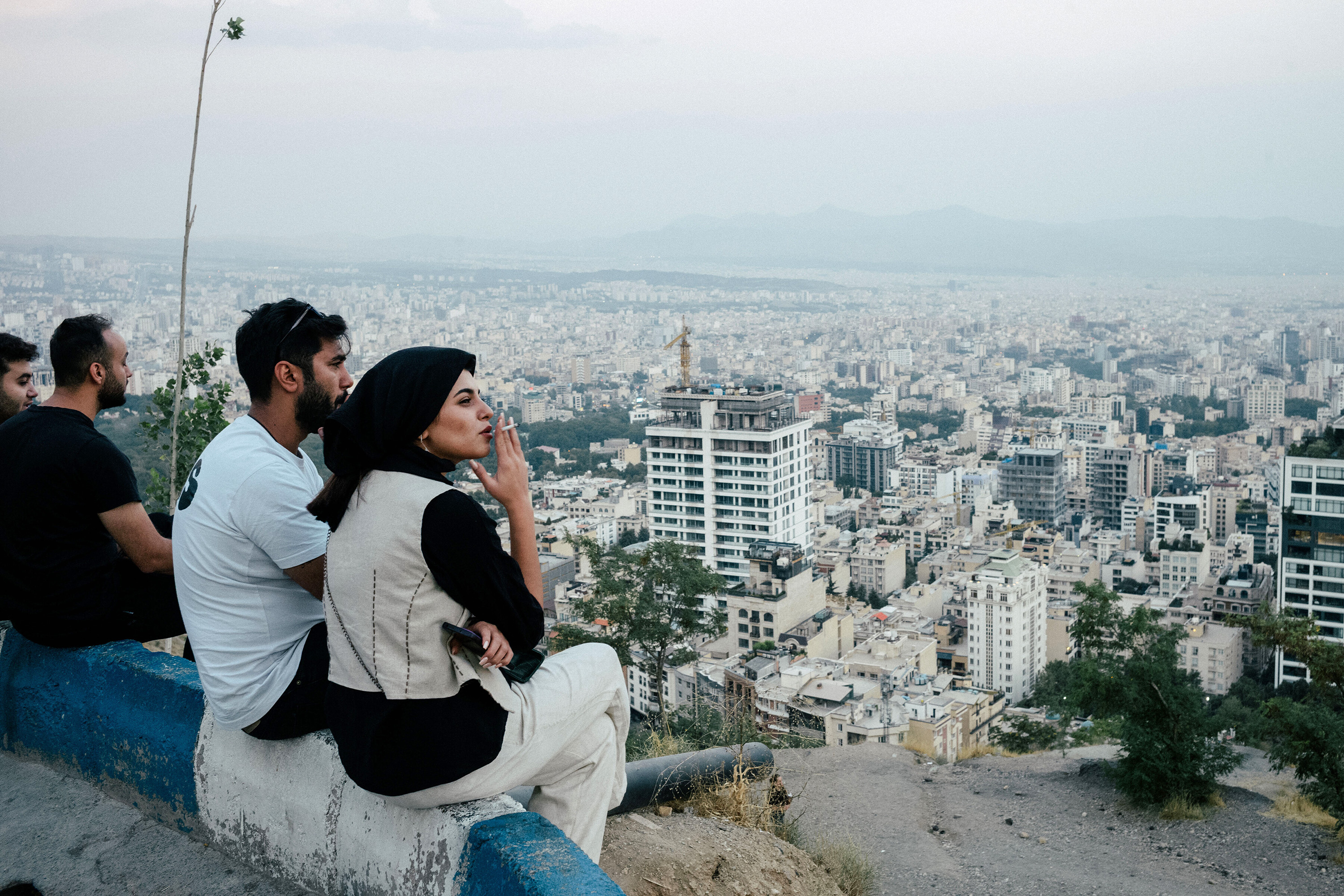Robert Malley is one of the finest US diplomats of recent decades. His new book Tomorrow Is Yesterday, cowritten with Hussein Agha, is a sober, plaintive and deeply analytical dissection of all that has gone wrong with the vaunted two-state “solution.” I was honored to be in conversation with him on a range of themes from Israel-Palestine to Iran to, naturally, US complicity.
Chetan Bhatt, a professor of sociology at the London School of Economics, and an expert on social theory as well as far-right violence, examines the failures and missteps of the left’s morality plays in recent years. Rather than confect another screed indicting the left’s descent into identity politics, Bhatt focuses productively on its need to reintegrate morality and knowledge, both to reinspire its moral imagination and to tie it to actual evidence-based reasoning.
Adéwálé Májà-Pearce has long been one of the keenest observers of the (pan) African scene. Here he wonders to what extent colonial contradictions have ever really been swept away, examining the general flaccidity of institutions like the African Union in the context of Western powers that continue to leech on the continent.
Our curated content commences with the journal American Affairs, which has quickly become one of the most interesting publications on domestic and foreign matters in the US. Don’t be fooled by its bargain-basement understatement: some of the most critical writing about America’s political and economic condition is found here. This essay, by two young scholars questioning the authoritarian perspective as it applies to the US, is an excellent example.
Next up is Nedal Abusaif in Critical Legal Thinking who tells a necessary story about post-Apartheid South Africa and, complementing the point Májà-Pearce makes in his essay, how colonial structures, real and imagined, live on (and on). Abusaif does offer a way out, and we should take heed.
Last is an interview with the rising academic star Alyssa Battistoni on the occasion of her new book, Free Gifts: Capitalism and the Politics of Nature. Battistoni, as non-orthodox as they come, looks at capital’s domination of the ecological means of production. But in updating the radical theories of Marx and others, she takes them into the twenty-first century.
Our music for Issue 48 is the just-passed Brazilian maestro and multi-instrumentalist, Hermeto Pascoal. Known as “The Mad Genius,” Pascoal was esteemed for his adventurous musical style, which, like Tom Ze, drew inspiration from unique and unusual sources. Here is Bebê from his 1973 live album.
—Leonard Benardo, senior vice president at the Open Society Foundations
Diplomatic Delusions
An Interview with Robert Malley

Leonard Benardo
The Ideas Letter
Interview
Malley, the lead negotiator of the 2015 Iran nuclear deal, reflects on decades of US policy in the Middle East, from the promise and unraveling of diplomacy with Iran to the enduring illusions of the Israel-Palestine peace process. He probes why Democrats are still hesitant to defend diplomacy, how sanctions have reshaped Iranian society, and what the language of “two states” obscures about the conflict’s deeper roots. With candor and skepticism, Malley insists that imagining a different future requires rethinking the very structures of American foreign policy.
“I want to clarify an important point. Some early readers of our book have questioned whether Hussein and I were endorsing an ‘essentialist’ view of Israelis and Palestinians, attributing the violence to ancient, immutable hatreds, and seeing in such feelings reflections of their intrinsic, unchanging and unchangeable nature. Nothing could be further from our point. Our argument is that the conflict itself, and the competing ideas of history and religion and rights to which it gives rise, prompts such emotions, and that the diplomatic efforts to resolve the conflict to date have done nothing to change those sentiments, much to the contrary: They have contributed to the current catastrophe, in large part because those efforts have eluded the core of the conflict.”
Further Reading
What Killed the Two-State Solution?
Hussein Agha and Robert Malley, The New Yorker
“The Israeli-Palestinian peace process was built on illusory hope; when the process collapsed, the hope was swept away and a repressed past came to the fore. This need not be a recipe for despondency. A breakdown of this magnitude, a physical, human, and political wreckage this absolute, can unveil uncomfortable truths, purge falsehoods, restore life to concepts once scorned as profane. It can help dispose of the fantasies that paved the way to calamity and prompt a comprehensive rethinking of the conflict. There is urgent work to be done—to end the carnage in Gaza by imposing tangible costs on the perpetrators of the ongoing slaughter. But also to unearth old ideas that the two-state stranglehold suppressed and to consider approaches to the conflict that touch on the essence of a struggle that will not be resolved by drawing lines on a map but by the long and arduous process of coming to terms with cruel history, deep-seated fears, and frustrated yearnings.”
Morality Plays

Chetan Bhatt
The Ideas Letter
Essay
The Western left is in crisis, unable to confront the far right because it has abandoned the historic synthesis of morality, knowledge, and emancipation that once grounded its politics. In its place has emerged a culture of “moral excellence,” where identitarian sectarianism and performative virtue substitute for universal principles and rigorous knowledge, producing moral posturing that fragments the left and leaves it politically ineffective at a moment of authoritarian advance.
“My argument is not for a renewed moral theory but for a modest call for a deeper critical examination of the moral assumptions that underpin the left’s beliefs and agency. Given the urgency of the present moment, and the reconstructive project that is essential for a left still mired in 1990s thinking, the moral assumptions, moral reasoning, and moral theories that lie beneath much of the Western left’s activism are important to examine.”
Did Colonization Ever End?

Adéwálé Májà-Pearce
The Ideas Letter
Essay
Despite the formal end of colonial rule, Africa remains trapped in structures of neocolonial domination and elite corruption that continue to undermine genuine sovereignty. The African Union, envisioned as a vehicle for continental unity and liberation, has instead become a toothless “old men’s club,” underfunded, dependent on external powers, and unwilling to challenge authoritarian leaders—leaving the continent’s vast potential subordinated to outside influence and internal misrule.
“In fact, the AU is not different enough from the OAU: it, too, is an old men’s club. Africa counts both some of the world’s oldest male presidents (their female counterparts are few and far between). It also counts some of the youngest demographics of any continent, and these older men jealously guard their privileges. Watch the 92-year-old Paul Biya currently planning to run in the forthcoming elections in Cameroon; he has been in power in one form or another since 1982. He isn’t even the longest-standing leader on the continent. That honor goes to the 83-year-old Teodoro Obiang Nguema Mbasogo of Equatorial Guinea, in power since 1979. … It is hardly surprising that such men would be wary of an AU that, as they see matters, is seeking to usurp their power; they are tardy in funding it. Many member states don’t bother to pay their annual contributions, which is why external sources funded two-thirds of its 2023 budget (and China built the new headquarters in Addis Ababa at its own expense).”
Authoritarianism, Reform, or Capture?
Democracy in Trump’s America
Dima Kortukov and Julian G. Waller
American Affairs
Essay
The authors push back against Steven Levitsky and Lucan Way’s recent Foreign Affairs essay, which argued that American democracy is transitioning into a competitive authoritarian regime. Kortukov and Waller contend that no such evidence of such a collapse exists: since the executive will continue to be constrained, democracy will survive. Despite deep polarization and enormous institutional stress tests, US elections, courts, media, and opposition remain robust.
“Perhaps the most questionable statement in Levitsky and Way’s article is their prognosis that “U.S. democracy will likely break down during the second Trump administration, in the sense that it will cease to meet standard criteria for liberal democracy: full adult suffrage, free and fair elections, and broad protection of civil liberties.” This prognosis simply is not based on reality, or at least any observed reality so far. Establishing authoritarianism, even of the competitive authoritarian variety, is a long and arduous task. Constitutional hardball, the collapse of norms, the restructuring of the state, harsh and polarized political rhetoric, and interbranch contestation may all be signs of a lack of health and stability in the body politic, but these are not expressions of immanent authoritarianism.”
Further Reading
The Path to American Authoritarianism: What Comes After Democratic Breakdown
Steven Levitsky and Lucan A. Way, Foreign Affairs
“Competitive authoritarianism will transform political life in the United States. As Trump’s early flurry of dubiously constitutional executive orders made clear, the cost of public opposition will rise considerably: Democratic Party donors may be targeted by the IRS; businesses that fund civil rights groups may face heightened tax and legal scrutiny or find their ventures stymied by regulators. Critical media outlets will likely confront costly defamation suits or other legal actions as well as retaliatory policies against their parent companies. Americans will still be able to oppose the government, but opposition will be harder and riskier, leading many elites and citizens to decide that the fight is not worth it. A failure to resist, however, could pave the way for authoritarian entrenchment—with grave and enduring consequences for global democracy.”
Reclaiming the Ground
Lawful Expropriation and Land Justice in South Africa
Nedal Abusaif
Critical Legal Thinking
Essay
South Africa’s post-apartheid land question is less about legality than about the persistence of colonial economic structures. The constitution permits expropriation that prioritizes justice over market price, but policy has been hamstrung by a market-led approach that treats dispossession as if it were morally neutral. To fulfill its transformative promise, the state must pair lawful expropriation—sometimes below or even without compensation—with real support for new owners, shifting from symbolic gestures and market deference toward substantive repair of historical injustice.
“The narrative battlefield matters as much as the legal one. Market orthodoxy casts colonially rooted property titles as morally innocent and constitutionally absolute, while depicting claims of the dispossessed as unruly demands for “free land.” In that frame, the state’s role is to compensate the beneficiaries of past dispossession at the very prices shaped by that dispossession—and then congratulate itself for being “investor friendly.” That is not reconciliation; it is indemnification. It is also historically amnesiac. The market in land was never neutral terrain. It was fenced by law, irrigated by public investment, and policed by pass systems and guns. To pretend that this market now speaks with the voice of natural fairness is to ask the victim to purchase the return of stolen goods at the thief’s store.”
The Production of Nature
An Interview with Alyssa Battistoni
Jochen Schmon
Journal of the History of Ideas
Interview
Political theorist Alyssa Battistoni, discussing her new book Free Gifts, argues for a value-theoretical account of capitalism’s appropriation of nature, critiquing both “new materialist” naïveté and eco-Marxist “moral naturalism” by re-centering the specific material qualities of production within capitalist social relations. She reconceives nature as a “free gift” structured by the value form, reframes pollution as class power rather than mere externality, and links environmental injustice to the hidden abode of production—while correcting feminist debates that denaturalize reproductive labor only to dematerialize it.
“I argue that instead of focusing on the ‘woman question’ through which reproductive labor has been interrogated, we should pay more attention to the concrete labor processes involved in different kinds of labor and, in particular, to the significance of human embodiment within them. As I argue, the labor of reproducing human life tends to unfold on the temporalities of the body rather than those of capital. As a result, it tends to resist forms of mechanization and industrialization which are crucial for value accumulation. These sectors remain labor-intensive and minimally profitable, and they consequently attract little, if any, capital investment. In addition to clarifying the relationship between labor processes and capital accumulation, I hope that this approach offers a way to theorize the significance of human bodies and bodily difference in labor processes without presuming that certain kinds of bodies or labor are inherently gendered. In other words, I hope that it can help Marxist feminism in the vitally important project of attending to embodiment without adopting a gender essentialism.”
